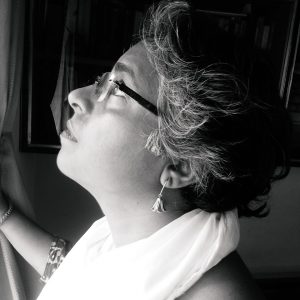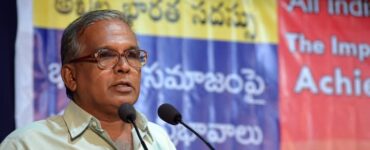 I went back to reading a play after a very long time. No, not because I had to teach it. I remember Appagaru often borrowing plays from the British Council Library and the American Library in Calcuttta. That was how I began reading them, at times after him and at times I got to read it first. I do recall vividly, it was just after my graduation examinations were over and there on the table was a volume of three plays by Eugene O’Neill that caught my attention. I now had time to catch up with reading and O’Neill gave me company for some time. I continued this habit for a very long time. In recent times fiction and poetry seem to have taken a preference.
I went back to reading a play after a very long time. No, not because I had to teach it. I remember Appagaru often borrowing plays from the British Council Library and the American Library in Calcuttta. That was how I began reading them, at times after him and at times I got to read it first. I do recall vividly, it was just after my graduation examinations were over and there on the table was a volume of three plays by Eugene O’Neill that caught my attention. I now had time to catch up with reading and O’Neill gave me company for some time. I continued this habit for a very long time. In recent times fiction and poetry seem to have taken a preference.
The play that I write about in this column is Betrayed by Hope, A Play on the life of Michael Madhusudhan Dutt. I must say that I have an academic interest in the period that Madhusudhan belonged to and in the literature of that period. Years ago I worked on a research project on poetry written in English in Bengal in the nineteenth century and this play just fits into my academic interest as well. Written by Namita Gokhale and Malashri Lal, the play presents the life and works of Dutt and brings in a fictional character, a Sutradhar, Rubina Rahman, a young scholar. The character of the Sutradhar in the play is a woman, a young Bangladeshi scholar who is working on the poet as part of her PhD. She is located in the present times and the play moves between time frames. The Sutradhar begins the play by introducing the poet on whose life the play is based and also introduces herself – “So here I am, juggling with this man’s work – new translations of his poetry, his letters to his friends and mentors, and a sheaf of material that’s driving me round the bend.”
Our first introduction to the poet is through the poem “Kapotaksha River” that is heard being recited offstage. When Michael Madhusudhan Dutt first appears on stage he is heard talking about Byron, reciting lines from Byron and then reciting lines from his poem, “The Upsori”. The play presents the life of Dutt by moving through time and various moments in history and lays out before us aspects of his life and work through letters that he wrote to his friends and mentors, through the character of MMD (that is how Michael Madhusudhan is referred to in much of the play) and through the way the Sutradhar looks at them too. Dutt’s thoughts about language is linked up to Rubina’s own – “… am I a Bangla-speaking Bengali, or am I propelled by an alien English tongue?” We hear Dutt’s opinions on language that he worked through – “I had a great contempt for Bengali, but that was a fact. But now, I even go the length of believing that our Blank Verse ‘thrashes the Englishers’ … is not Blank Verse in our language quite as grand as in any other?” Dutt began writing in English and later switched to Bengali becoming a very important poet in the language with works such as Meghnadbadh Kabya, and Birangana among others. He was the one who introduced the sonnet into Bengali. The Sutradhar says in response to this shift in the use of language seen in Dutt – “What an unexpected turn of events! The great votary of English literature has decided to go native. MMD was an amazing polyglot, ahead of his time in his cosmopolitan literary sensibility, And now we come to his poetic ‘poriborton’, his return to the mother tongue.”
The play is written in five acts with the Sutradhar drawing attention to various aspects of MMD’s life and work. After she speaks of his play Sermista, we get to read a letter from the poet where he speaks of this play and the fact that it is successful. The personal too comes in and at one point the Sutradhar asks, “In the depths of his heart, did Madhusudan feel guilt towards the wife (his first wife Rebecca Thompson) he had abandoned in Madras…Was he turning his guilt into dramatic art by focusing on heroines, bold and accomplished in his shorter plays and poems?”
It is interesting to note that the play is in the nature of a montage that weaves in past and the present with the letters being read by an actor who plays the poet at various parts of his life. The interventions of the Sutradhar take place in the present times. Her dialogues are at times like a commentary of the times in which Dutt wrote and the circumstances of his life and work.
*









Add comment